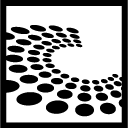23C3 - 1.5
23rd Chaos Communication Congress
Who can you trust?
| Referenten | |
|---|---|

|
Sebastian Wolfgarten |
| Programm | |
|---|---|
| Tag | 3 |
| Raum | Saal 2 |
| Beginn | 12:45 |
| Dauer | 01:00 |
| Info | |
| ID | 1473 |
| Veranstaltungstyp | Vortrag |
| Track | Society |
| Sprache | englisch |
| Feedback | |
|---|---|
|
Haben Sie diese Veranstaltung besucht? Feedback abgeben |
The worst part of censorship is XXXXX
Investigating large-scale Internet content filtering

This talk analyzes large-scale, countrywide Internet content filtering from a technical point of view and investigates the current situation in the People’s Republic of China. Additionally it discusses techniques to effectively defeat censorship and based on various tests conducted by the author, comments on their applicability in the Chinese part of the Internet.
Nowadays the Internet has become an essential element of the world’s media landscape and our everyday lives. Thus for many people sending and receiving emails, chatting with friends, researching information or even purchasing goods online is almost as common as watching TV or listening to the radio. Interestingly without being further challenged it is generally taken for granted in the Western world that based on human rights, constitutions, legal systems and moral values, access to the Internet is provided freely, unlimited and most importantly unfiltered. But in reality the situation for millions of users world-wide is completely different: "Chat rooms monitored. Blogs deleted. Websites blocked. Search engines restricted. People imprisoned for simply posting and sharing information" [1]. In an attempt to create virtual frontiers in cyberspace countries such as China, Vietnam, Tunisia, Iran, Saudi Arabia and Syria [1] have installed a multiplicity of technical and non-technical controls to censor the Internet and prevent their citizens from accessing or publishing information the government regards as illegal. Therewith these countries are denying essential human rights to their citizens and specifically violate article 19 of the Universal Declaration of Human Rights which states that "everyone has the right to freedom of opinion and expression; this right includes freedom to hold opinions without interference and to seek, receive and impart information and ideas through any media and regardless of frontiers" [2]. In order to gain a further understanding of the functionality and the extent of such censorship, this talk investigates large-scale, countrywide Internet content filtering from a technical point of view. Therefore at first it discusses various means of filtering a government might enforce to perform censoring. Next it investigates the current situation of Internet filtering in the People's Republic of China and presents the implications for Chinese users by providing concrete examples. Finally this presentation particularly highlights techniques to circumvent Internet censorship focusing on practical and easy to use solutions that are applicable in China.
[1] Amnesty International. Irrepressible.info, an amnesty international campaign. Campaign published on website http://irrepressible.info, 2006. [2] United Nations. Universal declaration of human rights. UN Resolution 217 A (III) of 10 December 1948, 1948.
